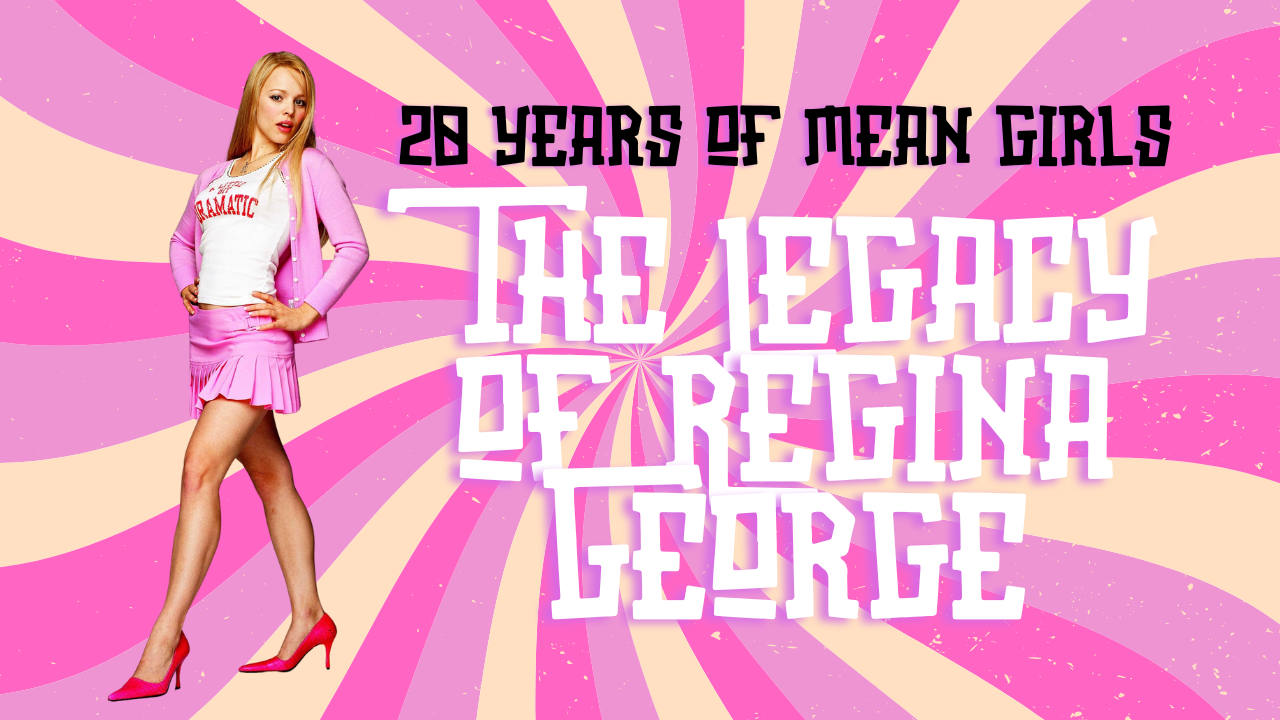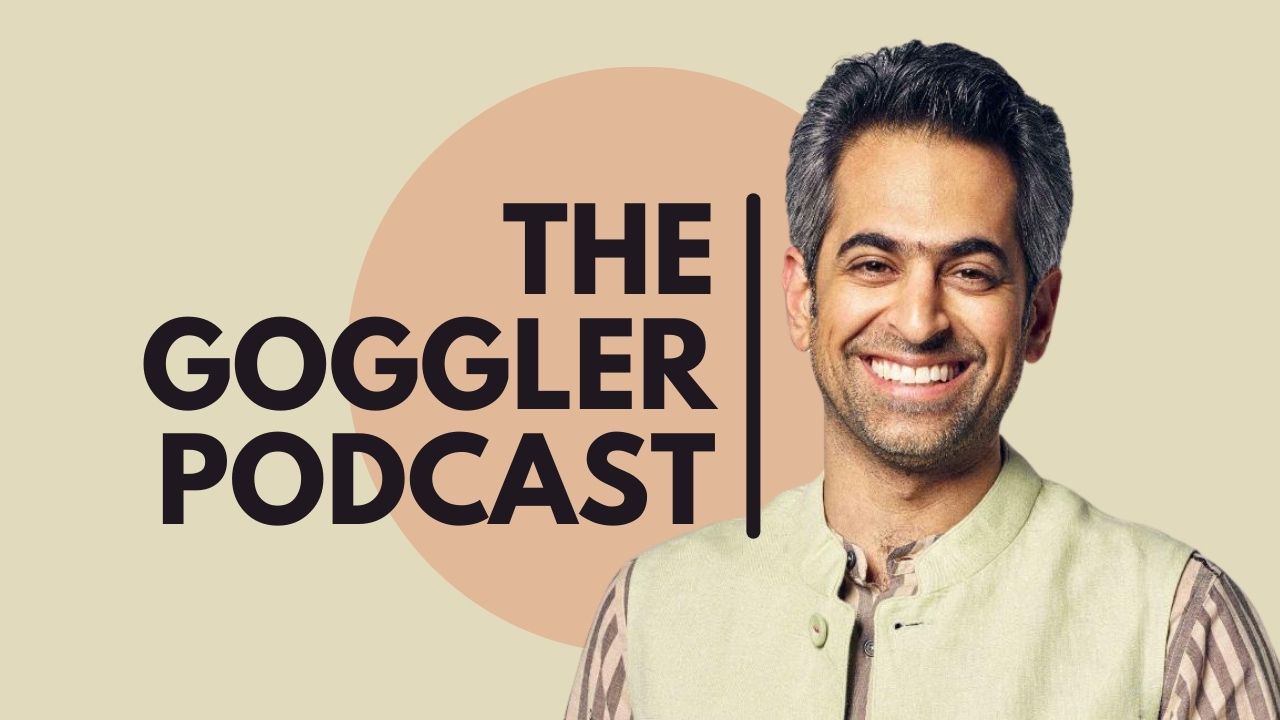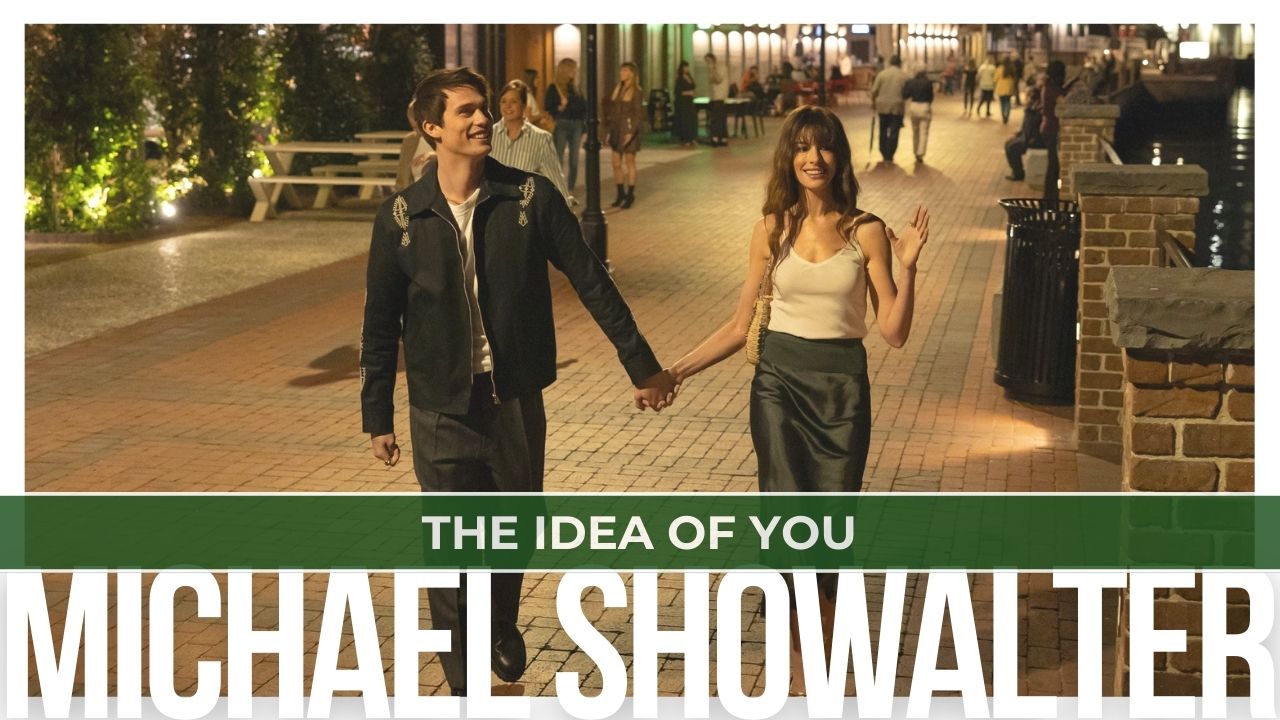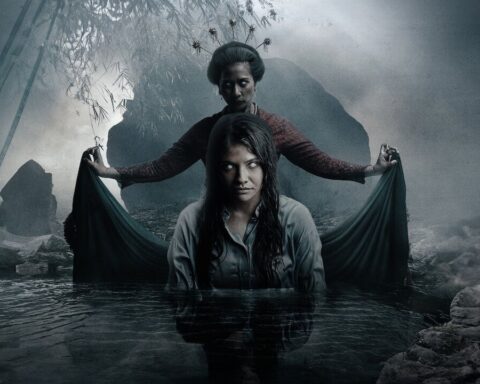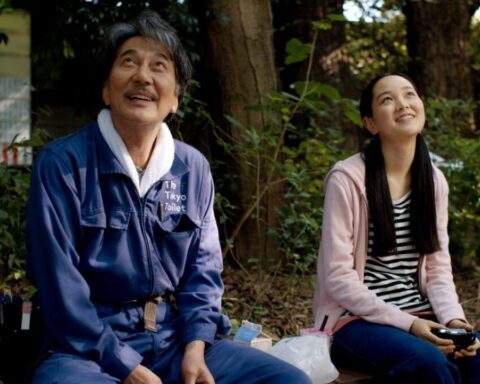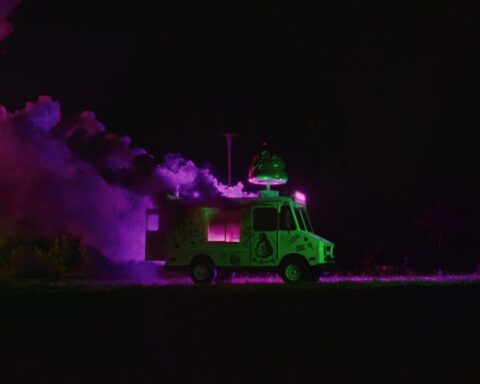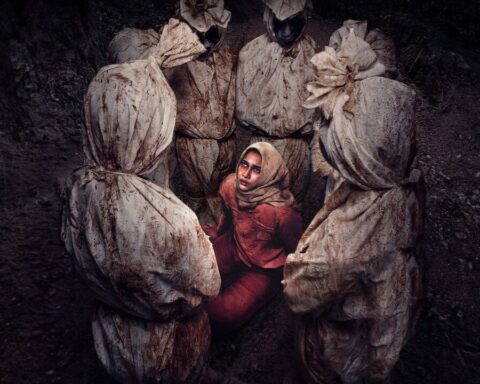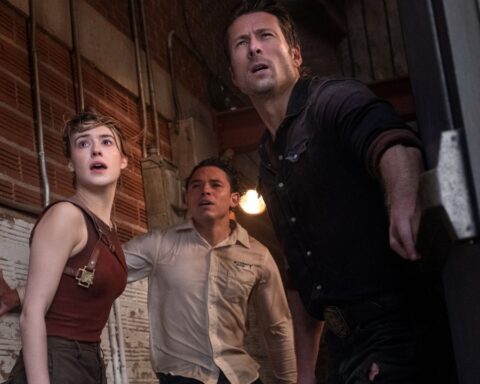What comes to mind first when thinking of the teen movie behemoth that is Mean Girls?
Even though Lindsay Lohan leads it, Cady’s permeance into film history is negligible at best. Fetch has become a legend of a quote, something easily associated with the movie the moment it’s said. There is, however, definitely more than a blank slate of a main character and a quotable line that makes the 2004 film so memorable. And that something more comes from the blonde, mini skirt-wearing, so-called “villain,” of the story.
Regina George, played to perfection by an early career Rachel McAdams, has stood the test of time and reigns supreme as Mean Girl’s pièce de résistance. 20 years on, she’s transformed into the lasting icon of the movie – and subsequently the musical, and then the feature adaptation of the musical.
Nearly everything surrounding her has turned into pop culture fodder. It doesn’t matter whether it’s lines (“Boo you whore” or “Stop trying to make fetch happen!”), full-on scenes (literally getting hit by a bus cemented her memorability), or just how iconic her character was as a whole, her relevance in the real world rivals that of the iron fist she had over her fictional high school. It even shows in the marketing of the 2024 remake of Mean Girls, where most of the posters showcased Regina (played by Reneé Rapp this time) front and centre as compared to the “supposed” main character, Cady.
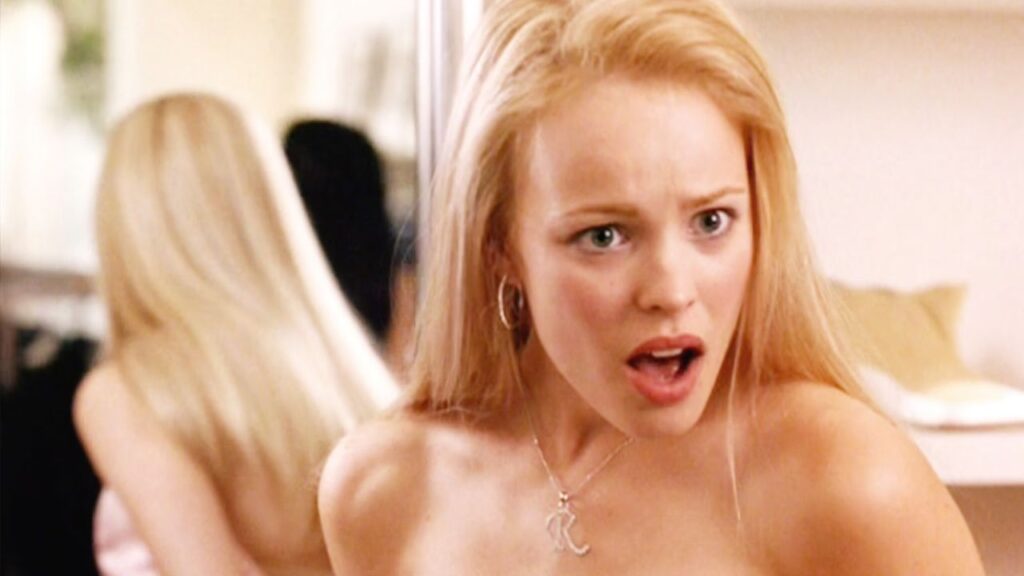
Similarly, in all musical recreations and iterations of, and for, the film, Regina’s image reigns. “World Burn” may be the “villain song” of the musical, but it is widely regarded as the most beloved number throughout, becoming the perfect accompaniment for when the other shoe drops and Regina unleashes the chaos of the Burn Book. The pop single that accompanied the remake “Not My Fault” may use a Cady quote as its title, but the music video is littered with references to Regina, the most obvious being Megan Thee Stallion’s white tank top look that shows off her purple bra through circle cut-outs (see also: MTS’ Instagram post with McAdams and Rapp that reads: “all the Reginas in one room”). Even Ariana Grande’s music video ode to 2000s teen films, “thank u, next,” features Grande playing Regina George, blonde wig and all.
And so the question is why? Why has Regina become the most popular thing to come out of Mean Girls? Is the mean girl of the film supposed to be revered, or have generational developments just pivoted us that way?
The obvious explanation is Regina George being the picture of a #GirlBoss and a standee for hyper-pink pop feminism. She is the fantasy of feminine power — she has her whole school kissing her feet in the first half of the film, and does it all without a hair out of place. She’s confident, doesn’t let anyone (especially not a man!) tell her what to do, and she knows she’s mean; the musical describes her as the “apex predator” for a reason. Her fashion is, of course, immaculate, and she’s rich too. On top of that, she has a smart streak to back it all up, and it’s empowering, in some regard, to watch her work her magic before Cady comes around in full force.
Even if Cady is the main character – acting as the audience’s conduit in the introduction to Girl World – the current media landscape has strayed away from characters like her. A world that loves anti-heroes and villains with deep backstories is bound to enjoy Regina much more. Though Cady “becomes” mean in the story, it’s ultimately an inherited trait, she’s only an imitation of Regina — and no one can beat the original.
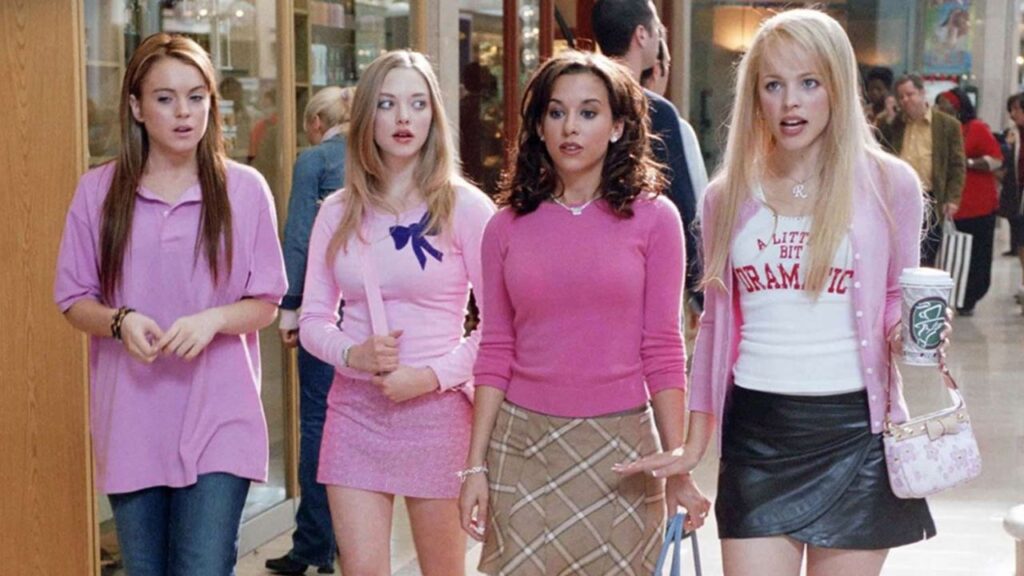
Looking at Regina George through a different lens also brings other considerations to her character, providing more reasons for audiences to latch onto her. When seeing the story from her point of view, she somehow ends up becoming an underdog. To Cady and Janis, she seemed to get her comeuppance for being a “life ruiner” through their efforts: she gains weight (a travesty according to the deplorable 2000s body standards), then loses her friends, and the long held position she had on the top of the high school totem pole. To Regina herself, the world as she knew it was crumbling down, and she has no idea why. When finding out it all happened because of the new girl she tried to befriend, she took her power back in the only way she knew how: a mean, manipulative scheme. But an argument can be made, that she only does that to get her agency back, and it plays out as satisfying revenge on her end .
Though she lacked some presence in the 2024 remake, Regina was given a bit more depth that could generally be waved away in the original film. With an obviously bad home life, a mother who wanted to relive her teenage days, and the inclusion of an arguably important scene in the bathroom at prom with Cady, she is brought down to a human level. It’s a reminder that she’s just a 16-17 year old girl in the end, something so easily forgotten in the cutthroat, comedic setting of Mean Girls. Plus, who doesn’t love a flawed character that gets their redemption at the end?
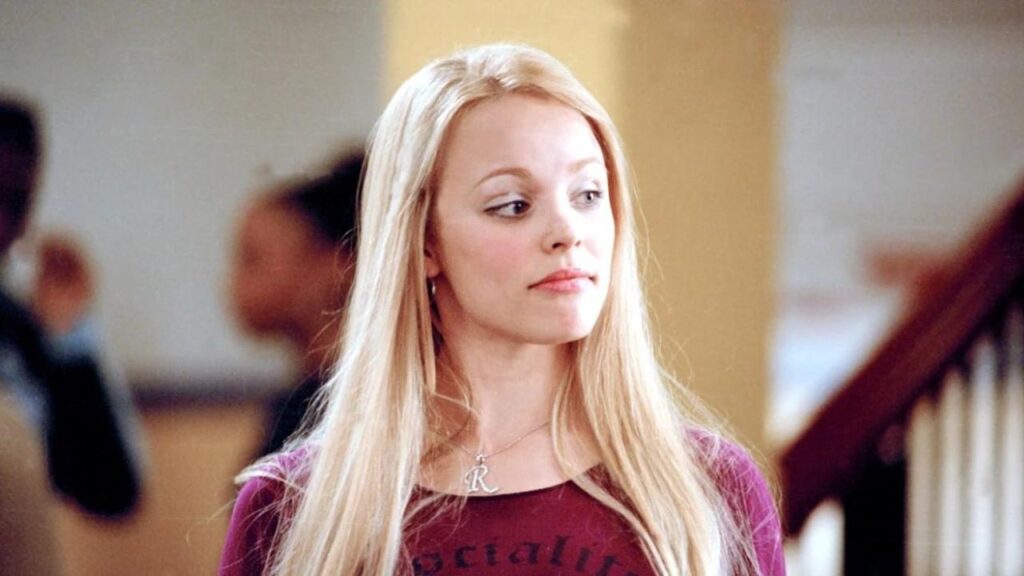
So, what is Regina George’s legacy? Is it a villainous mean girl, a pink girl power fantasy, or is she just a teenage girl who was making the best of her circumstances? It’s really up to what you decide to take from it, but there’s an inevitable expansion in how audiences respond to her as the film has become a cornerstone of 2000s pop culture.
Zooming out to look at the bigger picture, there can be an even bigger line of thinking that should be considered. Is Regina really the problem? Is she the human form of evil? Were Cady and Janis just as bad, or worse? Or are all the girls in the film just victims of a system that was implicitly and explicitly against them from the beginning, forcing them to fight amongst themselves in a dog-eat-dog world, just to survive and get by in high school?
Ultimately, whatever the case may be, it’s obvious that she’s become the face of this twenty-year-old nostalgia train. Her name is Regina George, and she is a massive deal.
